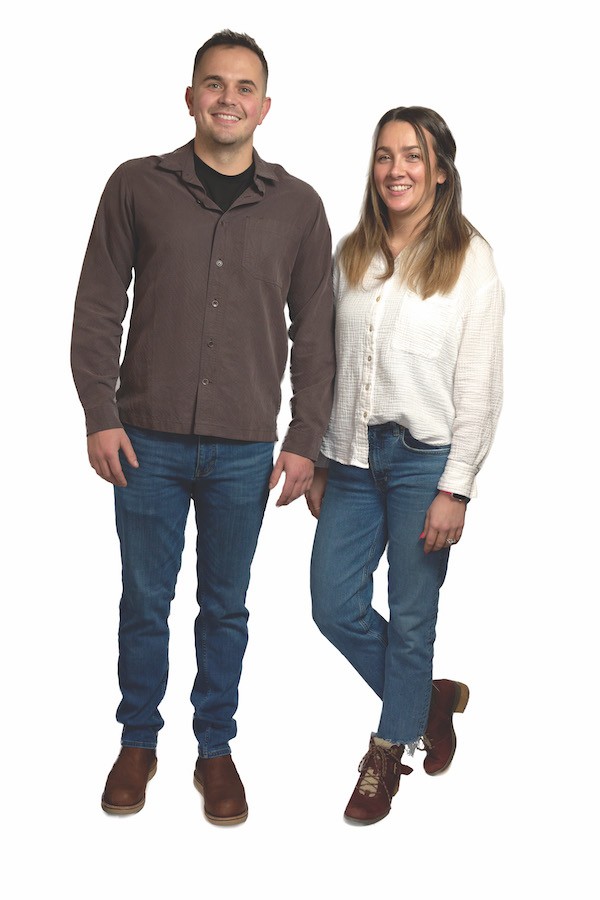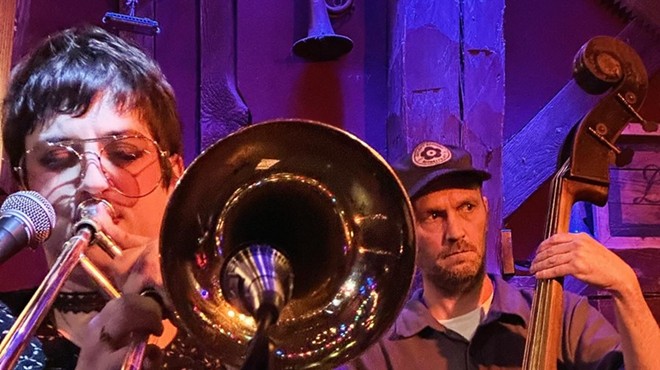Anyone who has started a business knows how alluring the dream of handing down their decades of hard work to their children can be. Yet of the nearly 5.5 million family-owned small businesses in the US, only 30 percent will successfully transition ownership to the next generation, and 47 percent of family business owners expecting to retire in five years do not have a successor.
As the oldest shoe store in the US continuously run by the same family, Montano’s in Saugerties is a Hudson Valley example of what it takes to cultivate a family succession plan that sticks. Founded in 1906 by Louis Montano, Sr., a shoemaker who emigrated from Italy, Montano’s has occupied the same storefront on Partition Street for 118 years. “Obviously family businesses can be good and bad, and some family businesses don't go well,” says co-owner Ed Montano, Jr. “We have a family that gets along and works well together, and it's probably been the saving grace for our longevity in business.”
Cultivating an Atmosphere of Cooperation
For three of its four generations, Montano’s has been run as a 50-50 partnership between two family members. When founder Louis, Sr. was ready to hand over the business, Ed’s grandfather, Louis, Jr. returned from New York City where he had been working at the Stock Exchange to help his younger brother Henry run the store. Eventually, they each handed down the business to one of their own sons, Edward, Sr. and Anthony. Today, the store is still run by Anthony in partnership with Edward, Jr. (Ed), who took over his father’s share of the business in his early twenties.

Prioritizing a spirit of cooperation has been the key to the cousins’ successful partnership, which has now lasted 30 years. “You have to be able to get along and respect each other,” Ed says. “We discuss pretty much everything together, even if it's not necessary. Anthony can certainly make decisions without checking with me, and vice versa, but out of respect for each other, I think it's good that we both agree on things.”
While it may also be second nature for young people stepping into their family business to want to shake things up and do things their own way, Ed says an attitude of humility served him especially well as he was entering into a partnership with his older cousin. “You have to try to learn from the other people that have been there longer, while they’re still there,” he says. “The majority of what I learned as far as running a business I learned from my father and from Anthony.”
Prioritizing Long-Term Financial Stability
Much of Montano’s success can be attributed to the fact that the store is one of the only remaining full-service shoe stores in the region where customers are measured and fitted for shoes by a salesperson every time they visit the store. Maintaining this high-touch approach to their business has allowed the family to cultivate a robust pool of returning customers and even bow out of offering ecommerce on their website, which adds complexity and cost to operations.
According to Ed, the business’s adherence to its core strength of customer service is what has ensured financial stability of the business over time. It also played a key role in encouraging him to take on ownership. “There was never any pressure on me to come into the business or to take over the business by my family,” says Ed. “I came into the business just for a job as a teenager after school and, in time, I ended up liking it. It was a good business and a good way to make a living and it checked off all the boxes for me.”
Implementing strategies for growth is complicated for any business, and can be especially so for family businesses where conflicts can become more personal. To avoid the strain that intense business growth can put on both a business’s financials and the family, the Montanos have prioritized the longevity of the original storefront above opportunities for expansion. While the family has considered purchasing other shoe stores and adding multiple locations, they agreed that growth for growth’s sake was not in their best interest.
“We didn’t ever want to spread ourselves too thin. We really just want to be able to focus on the customers here and continue to run this business,” says Ed. “And when it came down to it, we really never thought we had the need to, because we were always able to produce enough business out of this store to provide for everybody and for the business to be strong enough.”
“Our main focus isn't always just on making money,” he adds. “It's about running a successful business, which in turn, makes you profitable.”
Embracing the Family that Embraces the Business
While the “eldest son” tradition of inheritance still holds true in matters of monarchy, when it comes to family businesses, it can be vital to remain open-minded about where the next generation of owners will come from. Ed and Anthony, aged 52 and 70, are already planning to pass Montano’s on to two relatives who have proven that earnest interest in the family business is more important than the traditional expectations placed on children of owners.

Ed’s own children are still quite young and interested in other career paths, but his sister’s son Jeffery showed an interest in the store from an early age. He started stocking shelves in high school and made the decision to return to the business after college. “He seems to be a natural here, he's great with people, and loves the shoe business,” Ed says. Anthony’s two sons were already involved in his other heavy equipment business, but his daughter-in-law Anica started helping out at the store and ended up turning it into her career. “She has a real knack for shoe buying and she's got great business sense,” says Ed. “They both have what it takes to continue the business.”
After more than a century, the tradition of two partners that was started by Louis Sr.’s sons has resulted in one of its key strengths. With two sides of the family always involved, there are ample opportunities for extended family members to step into the business, which has resulted in an expanded pool of possible leaders for the next generation. “There've been lots of family that have obviously gone away from the business, and there've always been a few family members that chose to go into the business,” Ed says. “I think that’s the reason why we've had such longevity in the same family all these years.”
There are many paths for small business owners who want to see their business succeed well past their retirement years. Prioritizing relationship-building, making decisions that result in long-term financial stability, and identifying family members who have a vested interest in continuing the business have helped Montano’s remain in the same family for over a century with many more years still on the horizon.














